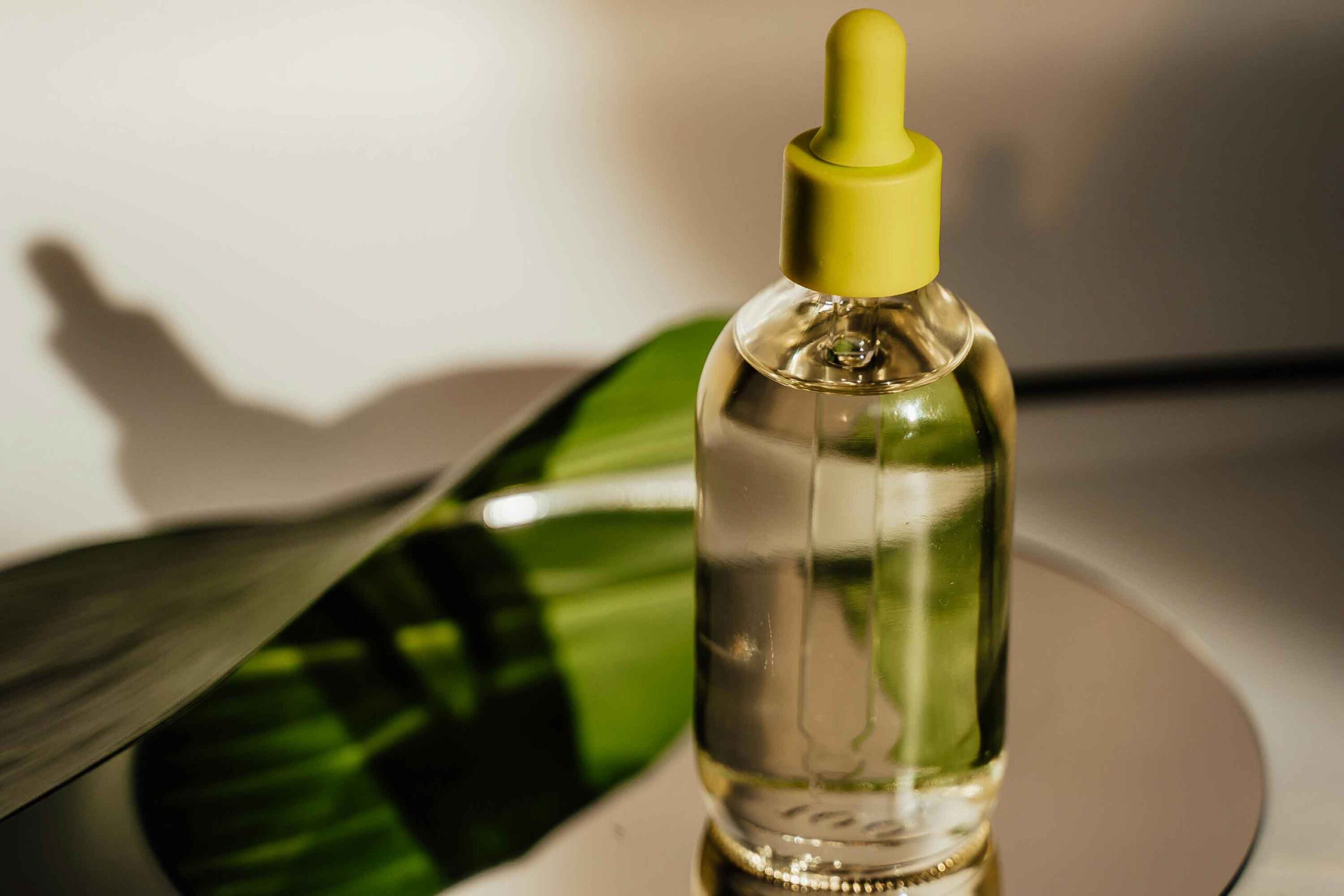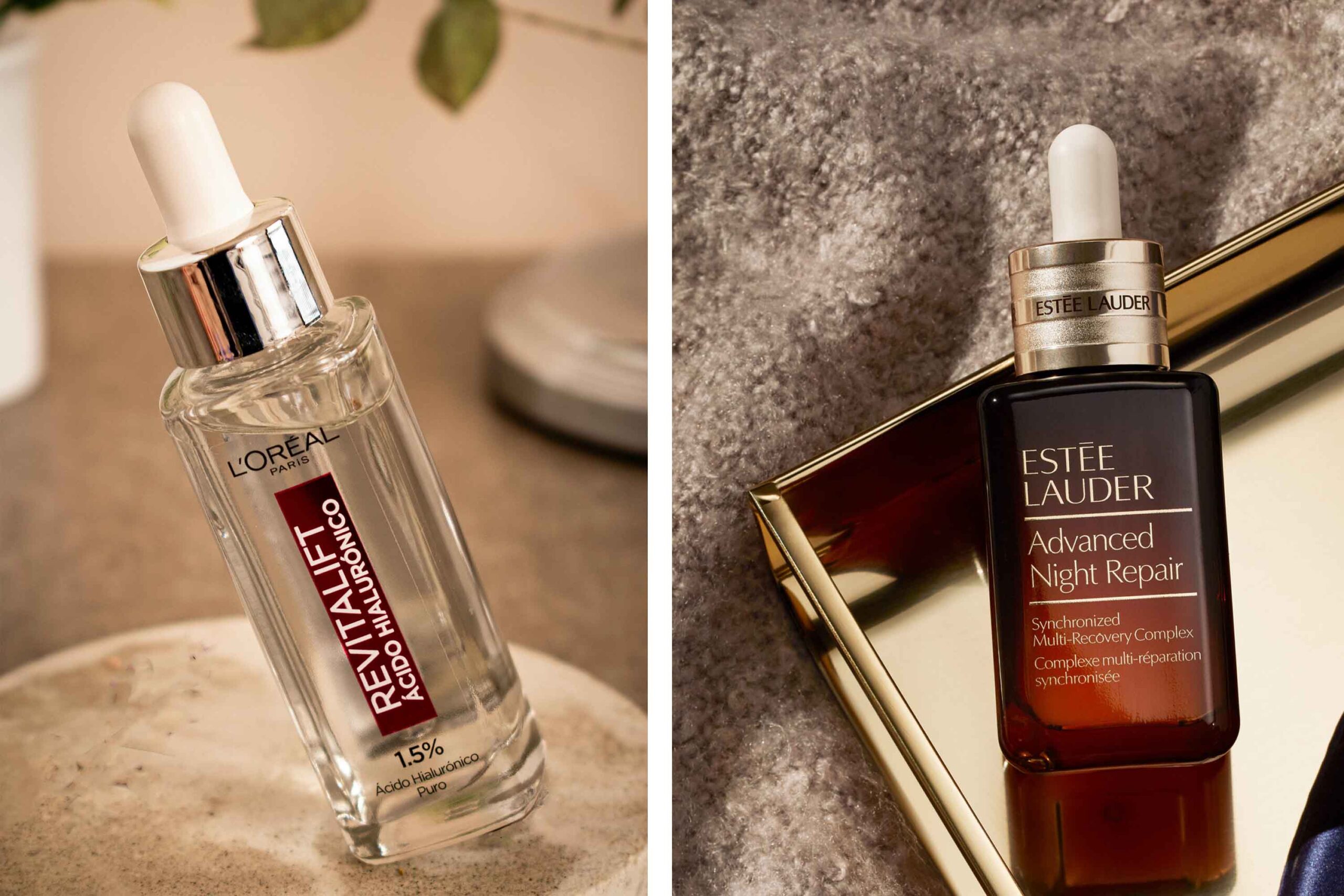Glass dropper bottles have emerged as pivotal components in the domain of sustainable packaging, particularly within the health, beauty, and wellness sectors. They offer a unique combination of protecting sensitive formulations from degradation while being an eco-friendly alternative to traditional plastic containers.
As we explore the multifaceted benefits these bottles offer, from their recyclability to their role in enhancing product longevity, a critical question arises: what challenges do brands face when integrating luxury glass dropper bottles into their supply chains? This inquiry not only highlights the complexities of sustainable practices but also invites further exploration into innovative packaging solutions.
Introduction to Glass Dropper Bottles
How do glass dropper bottles serve pivotal roles across various industries? These vessels are integral in the storage and precise dispensation of products like essential oils, serums, and tinctures, especially within the health, beauty, and wellness sectors. The technical design of glass pipette dropper bottles guarantees that they are not just functional but also aesthetically appealing, catering to both utilitarian and luxury market segments. Cosmetic dropper bottles, in particular, are engineered to preserve the integrity of sensitive formulations while offering controlled application.
Amber glass dropper bottles are highly valued for their ability to protect contents from ultraviolet light, which can degrade delicate compounds. This feature makes them indispensable in maintaining the efficacy of active ingredients. Reusable glass dropper bottles contribute to sustainability efforts, aligning with the increasing demand for eco-friendly glass dropper bottles. The material’s inert nature ensures that there is no interaction with the product, preserving its purity and quality.
Luxury glass dropper bottles are crafted to enhance brand image, offering a tactile and visual experience that complements high-end cosmetic lines. This blend of functionality and elegance guarantees that glass pipette dropper bottles remain a cornerstone in product packaging across diverse industries.
The Environmental Benefits of Glass Packaging
Glass packaging stands as a model of environmental sustainability, offering numerous benefits that align with modern ecological priorities. One significant advantage is its recyclability; glass is 100% recyclable and can be recycled indefinitely without any degradation in quality. This characteristic makes glass vials with droppers an exemplary choice for eco-friendly bottle packaging. Additionally, shifting to glass packaging reduces reliance on single-use plastics, thereby mitigating plastic pollution. Customised glass dropper bottles serve as a sustainable alternative, providing an effective means to diminish environmental impact.
Glass production, while energy-intensive, ultimately results in a lower carbon footprint over the long term, particularly when glass bottles with pipette droppers are reused or recycled. This aspect underscores glass packaging’s potential for promoting sustainability in industries that heavily depend on packaging solutions. Moreover, glass’s non-toxic nature guarantees that luxury glass dropper bottles do not leach harmful chemicals into their contents. This property enhances product safety and preserves the integrity of the packaged substances.
Durability and Longevity of Glass Dropper Bottles
Due to their inherent durability, glass dropper bottles present a compelling option for both consumers and businesses aiming to minimise waste. The robust nature of glass as a material guarantees that these bottles can withstand various environmental stresses, including temperature fluctuations and exposure to diverse substances. This durability translates into a prolonged lifecycle, reducing the frequency of replacement and effectively diminishing the overall volume of waste generated. Consequently, reusable glass pipette dropper bottles are not only a practical choice for packaging but also an economically sound investment over time.
The reusability of glass further enhances its longevity. Unlike other materials that may degrade or lose structural integrity after initial usage, glass maintains its quality and functionality through multiple cycles of use. Glass dropper bottles can be efficiently cleaned and sterilised, allowing them to be repurposed for various applications. This adaptability extends their lifecycle, offering a versatile solution for storing various liquids, from essential oils to pharmaceuticals. By facilitating multiple reuses, glass dropper bottles considerably contribute to waste reduction.
To conclude, the combination of durability and reusability makes luxury glass dropper bottles a long-lasting and sustainable packaging solution.
Make the switch to glass dropper bottles and embrace a packaging solution that combines durability, reusability, and sustainability. Designed to withstand environmental stresses and maintain quality through multiple uses, these bottles are perfect for reducing waste while ensuring long-term value.
Contact us today to customise glass dropper bottles tailored to your needs and take a step toward a more sustainable packaging solution. Together, we can make a lasting impact.
Sustainability in Manufacturing
Building on the inherent benefits of durability and reusability, the sustainability of glass pipette dropper bottles extends into their manufacturing processes. These processes have seen notable advancements in eco-friendly production practices, driven by the imperative to minimise environmental impact. A pivotal development in this domain is the adoption of renewable energy sources within production facilities. Utilising solar and wind energy reduces reliance on fossil fuels, thereby decreasing the carbon footprint of glass manufacturing. This shift not only enhances sustainability but also aligns with global efforts to combat climate change.
Moreover, innovations in the glassmaking process itself have been instrumental. Manufacturers are now implementing techniques to reduce emissions, such as optimising furnace efficiency and employing advanced filtration systems to capture particulates and gases. These measures are essential in mitigating the release of harmful emissions during production. Additionally, the use of recycled glass cullet as a primary raw material considerably diminishes energy consumption and the need for virgin materials, contributing further to sustainable practices.
The focus on eco-friendly production methods highlights the glass industry’s commitment to sustainability, ensuring that the environmental benefits of resuable glass dropper bottles are realised not only through their use but from inception to completion.
Glass Dropper Bottles and the Circular Economy
Incorporating luxury glass dropper bottles into the circular economy hinges on their remarkable ability to be reused, recycled, and remanufactured, consequently minimizing waste and maximizing resource efficiency. Glass, as a material, boasts a fundamentally durable structure, which allows it to undergo multiple recycling processes without degradation of quality. This intrinsic property enables glass pipette dropper bottles to be collected, cleaned, and refilled, thereby extending their lifecycle considerably.
The recycling process of glass is both straightforward and efficient. Collected glass bottles are crushed into cullet, which is then melted and formed into new bottles. This process consumes less energy compared to producing new glass from raw materials, thereby reducing the carbon footprint. Additionally, utilising cullet in glass manufacturing decreases the demand for raw materials such as silica sand, soda ash, and limestone.
Moreover, the remanufacturing potential of luxury glass dropper bottles fosters a closed-loop system, aligning with the principles of the circular economy. The structural integrity of glass guarantees it remains a viable candidate for continuous cycles of use, recycling, and remanufacturing. As a result, glass dropper bottles are aligned with sustainability goals, supporting a system where resources are efficiently utilised and waste is minimised.
Consumer Consciousness and Market Trends
Amidst the growing awareness of sustainability among consumers, there is a marked shift in market trends favoring sustainable packaging solutions such as custom glass dropper bottles. This shift is particularly evident in the beauty and wellness markets, where consumer demand for sustainable and eco-friendly products is increasingly influencing packaging choices. Glass, a recyclable and non-toxic material, is becoming a preferred packaging medium due to its minimal environmental impact compared to single-use plastics.
The material properties of glass offer functional advantages, including chemical inertness and barrier properties, which protect the integrity of sensitive formulations. These attributes align well with consumer preferences for purity and sustainability, driving the adoption of glass packaging.
Skincare brands such as L’Oréal and Estée Lauder have incorporated customised glass dropper bottles into their product lines as part of broader sustainability initiatives. These companies recognise the importance of aligning their packaging strategies with consumer values, thereby enhancing brand reputation and consumer loyalty. This trend emphasises a strategic shift toward sustainable packaging solutions, driven by consumer awareness and regulatory pressures. The adoption of customised glass dropper bottles signifies a broader industry movement toward environmentally responsible practices, capitalising on the dual benefits of functionality and eco-consciousness.
With consumers increasingly valuing eco-conscious products, now is the perfect time to align your brand with sustainable practices. Our customised glass dropper bottles combine functionality, style, and environmental responsibility, helping your business stand out in the beauty and wellness markets.
Contact Primepac today to explore our custom packaging solutions and make a lasting impact—on both your customers and the planet.
Challenges and Considerations
In the domain of glass packaging, several inherent challenges demand consideration, particularly its weight and susceptibility to breakage. These characteristics demand strong design strategies and effective shipping solutions. The heavier mass of glass compared to alternative materials such as plastic increases transportation costs and carbon footprint. To mitigate these issues, companies are innovating with lightweight designs and employing protective, sustainable packaging materials that balance durability with environmental impact.
Moreover, the energy-intensive nature of glass production presents another significant challenge. The high temperatures required for manufacturing glass contribute to substantial energy consumption, leading to increased greenhouse gas emissions. To address these environmental concerns, industries are investing in renewable energy sources such as solar or wind power to supply their production facilities. This strategic shift not only reduces the carbon footprint but also promotes sustainable glass manufacturing practices.
Glass Dropper Bottles vs. Plastic: A Comparison
The debate between glass and plastic bottle packaging is essential in the context of sustainability, with each material presenting distinct advantages and drawbacks. Glass pipette dropper bottles offer significant long-term environmental benefits due to their recyclability and durability. Unlike plastic, glass can be recycled indefinitely without loss of quality or purity, reducing the need for virgin materials and lowering the carbon footprint over time. Additionally, glass is chemically inert, ensuring that stored substances remain uncontaminated, which is vital for products such as essential oils and pharmaceuticals.
Conversely, plastic dropper bottles, though lightweight and cost-effective, often contribute to environmental degradation. A substantial amount of plastic packaging is not recycled and subsequently accumulates in landfills or oceans. This leads to persistent ecological issues due to plastic’s resistance to biodegradation. While certain types of plastics are technically recyclable, the process is often limited by economic and logistical constraints, and recycled plastic can degrade in quality, limiting its reuse.
Frequently Asked Questions
What customisation options for glass dropper bottles do you offer?
Primepac offers a comprehensive range of customisation options for glass dropper bottles to meet your specific needs. These include:
– Size: Customise the dimensions of your packaging to perfectly fit your product.
– Shape: Design unique shapes that enhance the aesthetic appeal and functionality of your packaging.
– Colour: Choose from a wide range, including clear, white, black, amber, or customised shades, to align with your brand and captivate customers.
– Finishes: Opt for matte, gloss, frosted, metallised, or soft-touch finish to give your packaging a unique and premium appearance.
– Printing: Utilise advanced printing techniques to incorporate detailed graphics, logos, and brand messages on your packaging.
– And Beyond: Additional customisation options such as embossing, debossing, foil stamping, and window cut-outs to further personalise your packaging.
What is the minimum order quantity (MOQ) for custom glass dropper bottles packaging?
The typical MOQ ranges from 1,000 to 3,000 units. However, this is just a baseline. The exact MOQ for your project can vary depending on several factors, such as: design complexity, material selection and printing techniques. For a precise MOQ tailored to your needs, it’s best to contact our friendly packaging experts. They’ll consider all the details of your project and provide you with an accurate quote.
How do I know what the finished product will look like?
To ensure you’re confident in your packaging before production, we offer a two-step process:
– Ready-to-Print Artwork Approval: Review high-resolution artwork for final approval and adjustments before printing.
– Sampling Service: Receive a physical sample of your packaging, complete with printing and assembly, to assess colour, texture, and functionality.
This helps you make sure the final product meets your expectations.
Is refillable packaging right for me?
Refillable packaging is gaining popularity across Australia, and it’s a great option for a variety of products, including:
– Household cleaning supplies
– Skincare products
– Laundry detergents
Are refillable containers themselves recyclable or reusable?
Refillable containers are designed for reuse, but their recyclability varies based on the materials and design. You can customise them to align with your brand vision by incorporating PCR or other sustainable materials.
Conclusion
Glass dropper bottles are pioneers of sustainability, combining style and practicality in packaging. Made from durable glass, they protect products from UV damage and chemical reactions. Switching from plastic to glass marks an important step toward a more eco-friendly economy, thanks to glass’s long-lasting and recyclable nature. As businesses focus more on environmental responsibility, reusable glass dropper bottles are emerging as a key choice, paving the way for a future of sustainable packaging.





